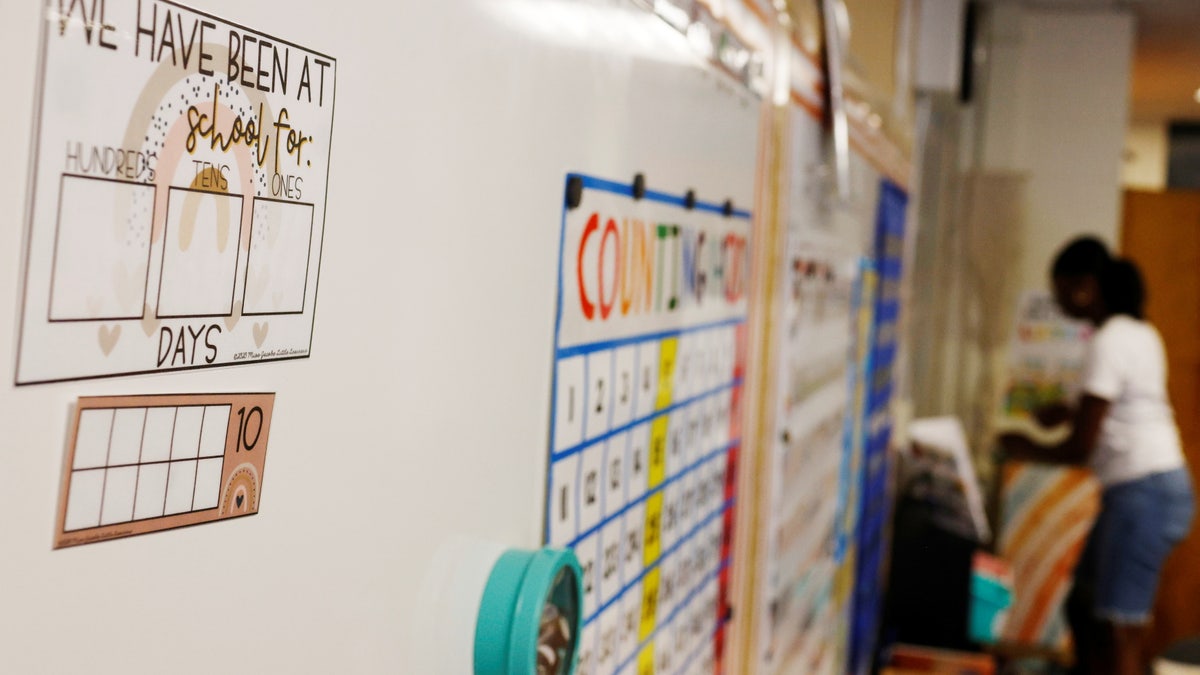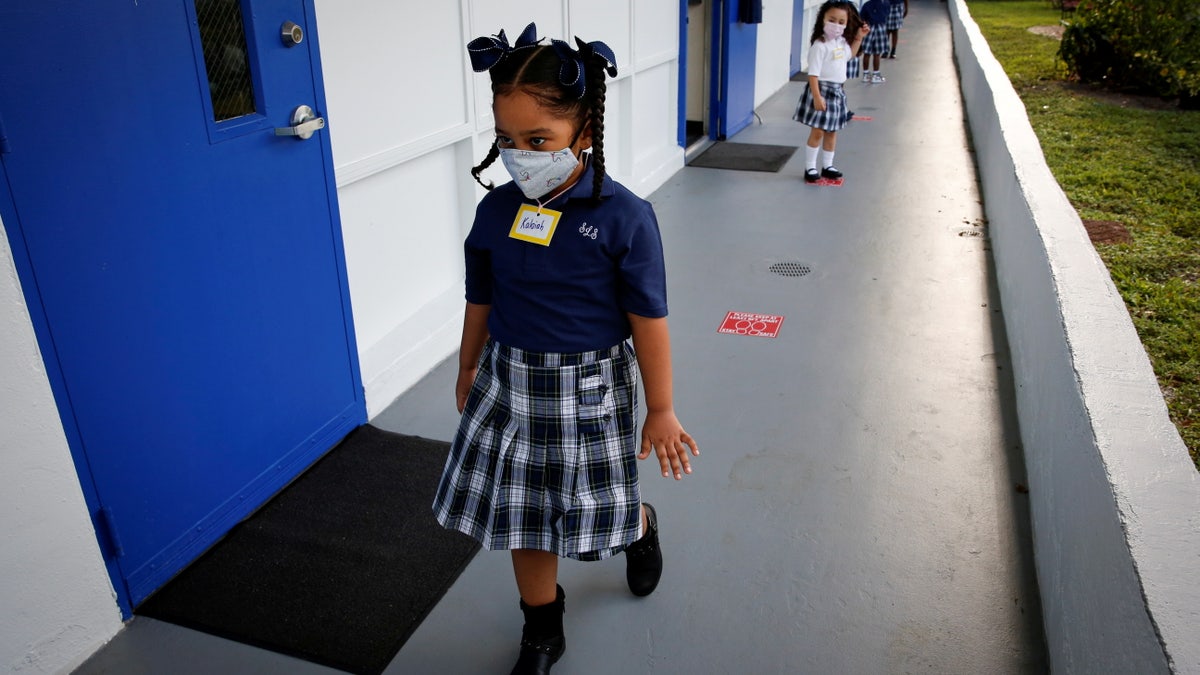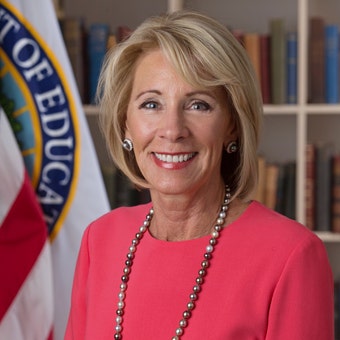DeVos on Virginia election: 'Very encouraged' by parents being engaged
Former education secretary Betsy DeVos addresses parental empowerment as the future of education weighs on the Virginia race.
There’s the potential for a new fault line in America’s ever-growing debate about parental rights: a schism between policymakers who believe parents have a right to know what’s being taught in public K-12 schools, and those who do not.
Wisconsin lawmakers recently passed overwhelmingly the nation’s first, most powerful academic transparency law to pull back the curtains on the content of classroom instruction. The bill requires schools to post online a list of the specific instructional materials being presented—so that current and prospective parents can see for themselves whether the content awaiting their kids is academically rigorous, or ideologically extreme.
[There are those] who believe parents have a right to know what’s being taught in public K-12 schools, and those who do not.
It remains to be seen if Wisconsin governor, Tony Evers, will take his veto pen to this common-sense measure or not.
This comes on the heels of very real threats to parents’ innate rights to raise their children in the way they see fit. The Biden administration acted on a letter from the National School Board Association which likened vocal parents demanding the best for their kids to agents of "domestic terrorism."
Leading up to his defeat, Virginia's Democrat gubernatorial candidate Terry McAuliffe said parents should have no say over the curriculum taught to their kids. Union bosses and their media allies have made clear parents should have no control over where, when or how their kids learn.
Now the actual content of curriculum is again taking center stage.
In theory, state laws across the country already affirm parents’ rights to access the instructional materials used in the classroom. But after the Wisconsin Institute for Law and Liberty revealed some Wisconsin school districts were demanding as much as $5,000 to respond to simple public records requests about content in a handful of courses at a handful of schools, state lawmakers recognized that the vague assurances currently on the books offer parents no meaningful rights at all.

A sign counting the number of days in school hangs on the wall as kindergarten teacher Princess Bryant prepares her classroom for students who will be required to wear masks because of the coronavirus disease (COVID-19) pandemic at the start of the school year, at the Tynan Elementary School in Boston, Massachusetts, U.S., September 7, 2021. REUTERS/Brian Snyder (REUTERS/Brian Snyder)
Similar tales are playing out across the nation. Consider Rhode Island mother Nicole Solas, whose attempt to glean basic curriculum information from her local school district before enrolling her incoming kindergarten daughter earned her a $74,000 bill, threats of litigation from her school board, and a lawsuit from the nation’s largest teachers’ union to block her access to related records.
In response, states as diverse as North Carolina, Arizona, Illinois, Texas, and Wyoming have already filed or advanced academic transparency legislation this year.
Because wokeness is the left’s religion, "banning" critical race theory or the 1619 Project won’t fix the problem. The liberal education establishment will simply rename, rebrand, or repackage these insidious ideas to get around so-called bans.
The vague assurances currently on the books offer parents no meaningful rights at all.
Instead, we must equip parents themselves with the tools to hold schools accountable for their programming decisions—to be able to see what is being taught and differentiate between activist and academically oriented schools before they have to make an enrollment decision. Schools, in turn, will find themselves under a meaningful spotlight for the first time, and those who don’t want to alienate prospective parents (and the substantial formula funding that comes with their kids’ enrollment) may finally have an incentive to veer away from political extremism on their own.

Students wearing a protective mask, queue up outside classrooms on the first day of school, amid the coronavirus disease (COVID-19) pandemic, at St. Lawrence Catholic School in North Miami Beach, Florida, U.S. August 18, 2021. REUTERS/Marco Bello TPX IMAGES OF THE DAY (REUTERS/Marco Bello)
Educators around the country have expressed their support for academic transparency legislation, pointing out that teachers already commonly submit their lesson plans to their principals or already keep track of the materials they assign in order to reuse them the next year—so there is little reason this information needs to be kept under lock and key.
Moreover, with teachers themselves reporting spending hours each week scouring the internet (including Google and YouTube) for materials, academic transparency would provide, as one teacher testified to North Carolina lawmakers, "a great collaborative effort for teachers and educators to find other resources that are effectively being used across the state and posting those and making them available for their colleagues."
CLICK HERE TO GET THE OPINION NEWSLETTER
But that hasn’t stopped the education "blob" from branding curricular transparency efforts as "Bullying & Censorship," "fascism," "teacher abuse," "intimidation and harassment…a conspiracy to prevent students from learning honest history."
CLICK HERE TO GET THE FOX NEWS APP
The Wisconsin bill’s sponsor, state senator Duey Stroebel, observed during the floor debate: "I didn’t think I would ever hear transparency equated to fascism like I just did here."
Hiding materials taught to children from their own parents seems a like line politicians should be wary to cross. We’ll see whether their big union funders push them to cross it.




